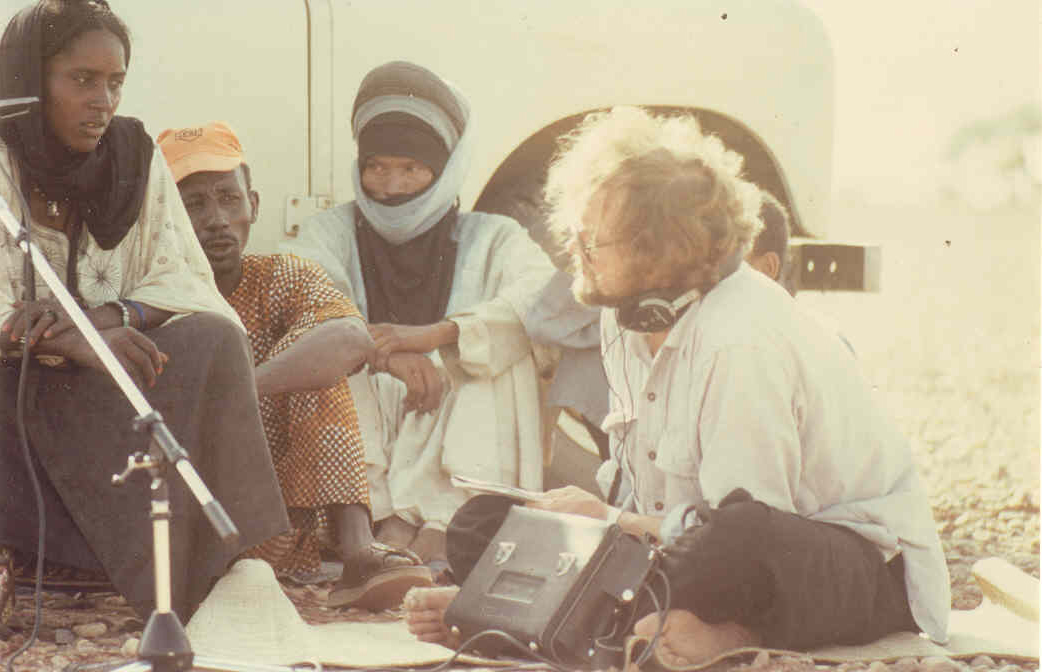
"Niger 1980" © F. Borel
Social-cultural anthropology documents and analyzes the lifeways, institutions and material culture of social groups across the globe. It studies their interpersonal and inter-group interactions and their relations to their material and natural environments in order to understand processes of cultural and material innovation and meaning-making, systems of classification, power and hierarchization, and the management of conflict and cooperation. Anthropological research focuses on the interplay between economic, political, moral, esthetic and spiritual sociocultural dynamics, demonstrating, in a holistic tradition, how different dimensions of social life are interrelated.
Traditionally social-cultural anthropology studied so-called pre-modern or traditional societies. Since the late 1960s, however, anthropology has greatly expanded and diversified its research topics. It is no longer limited to the study of small-scale communities, but focuses also on the regional, national and transnational contexts in which local communities are embedded.
Through publications as well as scientific and cultural events, the Swiss Anthropological Association (SAA) promotes basic research in anthropology, supported by its members and by the principal institutions for research and teaching in Switzerland. As a member society of the Swiss Academy of Humanities and Social Sciences, it also participates in broader debates about science policy in the humanities and social sciences.
As services to its members, the SAA:
- publishes an annual review entitled Tsantsa (with open on-line access)
- conducts annual or biannual meetings where junior and senior Swiss anthropologists can present their work in the company of international contributors.
- curates a large collection of ethnographic films, which are free for borrowing by institutional members
- supports specialized colloquia and workshops in the area of medical anthropology, audio-visual methods and graduate training
- produces positions papers on policy issues of relevance to anthropology, such as the open science / data management movement; professional ethics; data protection; and Swiss policy in the areas of migration, international relations and relations with the EU.